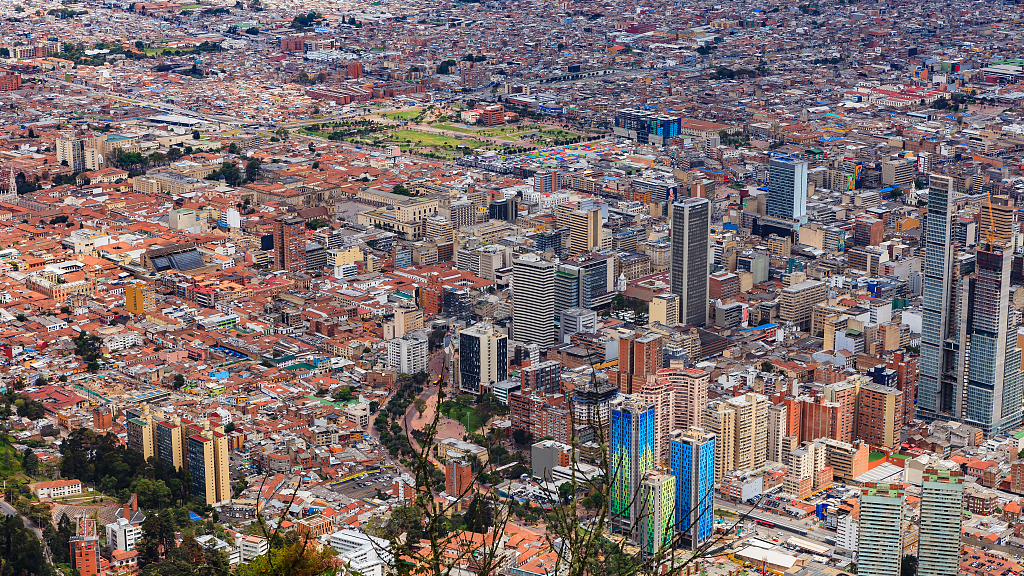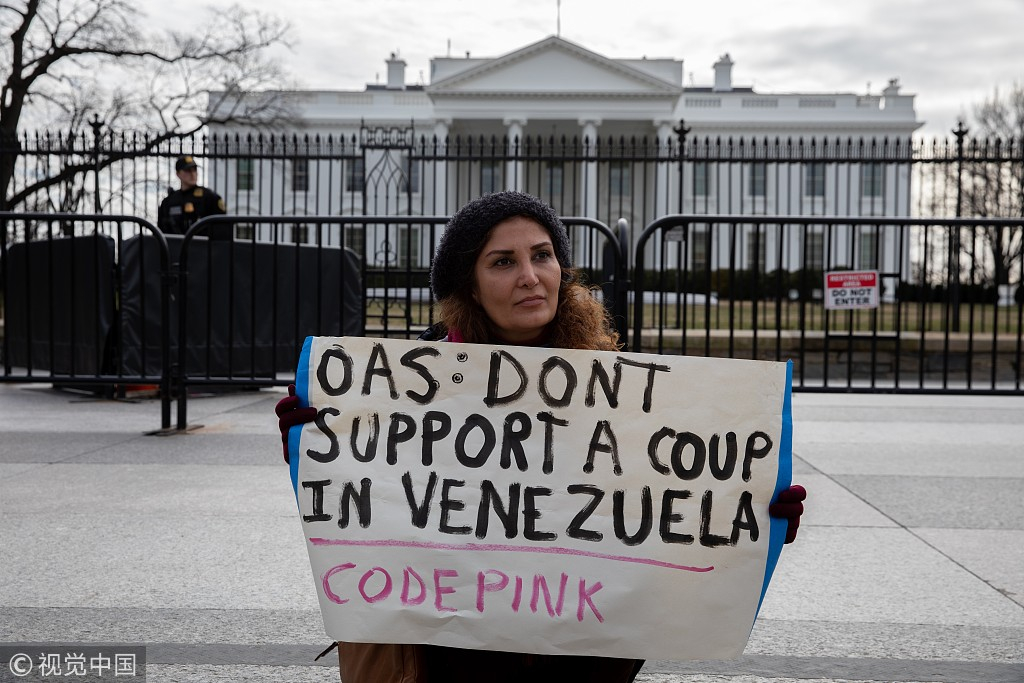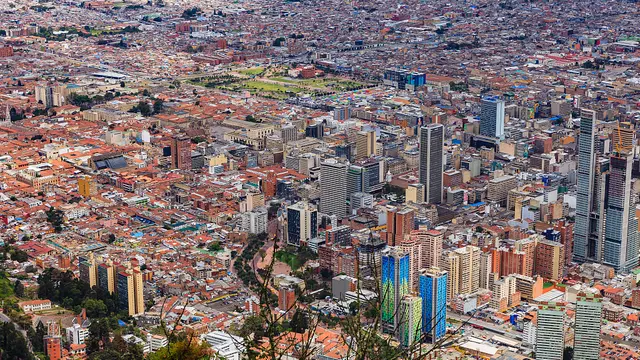
**Editor's note: **Bradley Blankenship is a Prague-based American journalist, political analyst and freelance reporter. The article reflects the author's opinions, not necessarily the views of CGTN.
U.S. President Donald Trump again held a legally questionable campaign event in the White House on September 23 to honor the veterans of the failed Bay of Pigs invasion of 1961 that sought to topple the Cuban Revolution. In doing so Trump hopes to pull more of the Latino vote – which he is actually chipping away at – by using this event as a way to celebrate Hispanic Heritage month. This is of particular strategic importance for Florida, where he is virtually tied against his opponent, Joe Biden, because of its Latino community that is largely hostile to independent Latin American governments.
Trump vowed to "defeat communism and socialism" both around the world and at home, pledging support for "the people" of Cuba, Nicaragua and Venezuela – all of which have popular and independent governments – in their "fight for liberty." The administration's hostility toward these governments is, as Trump said, a fight to see the day that the Americas become "a fully free hemisphere" and an atonement for the "weak and pathetic" dealings of the Obama administration with the Cuban government.
To this end, Trump announced that his administration would impose a new round of sanctions on Cuba by blocking Americans from staying at Cuban government-owned properties and restricting imports of Cuban alcohol and tobacco. This is part of the administration's "continuing fight against communist oppression" and will "ensure that U.S. dollars do not fund the Cuban regime and go directly to the Cuban people."
He also mentioned "strict sanctions" against Nicaragua and Venezuela, including phony charges against Venezuelan President Nicolas Maduro.
Of note, during the opening of his speech, Trump alluded to "a lot of things" in the works but that he couldn't share details "yet" with the audience. He later made a particularly interesting declaration by saying "The courageous veterans here today bear witness to how socialism, radical mobs and violent communists ruin a nation. Now the Democrat Party is unleashing socialism right within our own beautiful country."
"America," he declared, "will never be a socialist – or communist –country."
American philosopher of language and a true genius of our time, John Searle, defined a declaration as a "linguistic act" whose speaker makes something the case by simply representing it as being the case. It is not a description or a command but a spontaneous establishment of facts based on nothing but power in many cases.
An astute observer might see the parallel between Trump's declaration at the White House, his frequent use of "alternative facts" and perhaps even Venezuelan opposition leader Juan Guaido's self-declaration as Venezuelan president in 2019, because surely there is no real substance here. The nations of Cuba, Nicaragua and Venezuela have been made stronger and freer from their revolutions – people can walk proudly, armed with literacy, cultural inclusion, economic opportunity, health care and fundamental dignity.
The fact that these nations have enjoyed much more widespread prosperity when compared to their conditions before their independence is indisputable –so much so that it hardly deserves to be seriously litigated in this column.
It should at least also be stated that the Democratic Party is obviously in no way a socialist or communist outfit and Trump may recall that it was President John F. Kennedy – a Democrat – who launched the failed Bay of Pigs operation. For all of Trump's fabrication of reality, however, someone ought to inform him that Latin America is no stranger to such declarations.
Over 500 years ago, the Spanish who arrived in the Americas – of which Cuba was one of their first discoveries – brought with them their monarchy and their God, who both christened the conquistadors with the divine authority to subjugate the native population.

A woman holds a placard in support of Venezuela's President Nicolas Maduro in front of White House in Washington, January 26, 2019. /VCG Photo
Speaking in an incomprehensible language, the Spanish invaders recited the
Requerimiento
to their victims, which conferred to the people the right to subjugate themselves to the Spanish monarchy "with good will, without any resistance, immediately, without delay" and urged them to do so "of their own free will, without any reward or condition."
"If you do so, you will do well, and that which you are obliged to do to their Highnesses, and we in their name shall receive you in all love and charity, and shall leave you, your wives, and your children, and your lands, free without servitude," the invaders declared.
"But, if you do not do this, and maliciously make delay in it, I certify to you that, with the help of God, we shall powerfully enter into your country, and shall make war against you in all ways and manners that we can… we shall take you and your wives and your children, and shall make slaves of them, and as such shall sell and dispose of them as their Highnesses may command."
The cavalier declarations of Washington in interfering in the internal affairs of independent Latin American states since the establishment of the Monroe Doctrine is identical to the downright inhuman attitude of the Spanish conquistadors toward their victims. Such is the sentiment of the Cuban Revolution, that rightfully sees no difference between Spanish and American colonial rules that both brought unfathomable suffering to its people.
The forces of decolonization were successful in casting off the chains of Spanish oppression in the New World generations ago, and they were successful in disposing of the chains of American servitude in the 20th century – Cuba doing so first at the very heels of the American empire itself –but the struggle still continues.
As the legendary leader of Latin America's independence, Simon Bolivar, famously said, "To do something right it must be done twice. The first time instructs the second."
Indeed, the struggle against Spain was what informed, and still informs, the struggle against American imperialism in Latin America. This struggle is perhaps best embodied by Nicolas Maduro, the president of the Bolivarian Republic of Venezuela that bears Simon Bolivar's name, who spoke out on September 21 before the United Nations General Assembly (UNGA) against "the world of hegemony, the world of imperialism."
These words are not empty resistance – Venezuela's strength, militarily and societally, cannot be underestimated as they have staved off decades of relentless American aggression. Cuba and Nicaragua have similarly defended themselves from seemingly impossible odds – perhaps even at times more hopeless odds – for generations.
History paints a clear picture that when the impossible happens for one movement time and time again, it cannot be denied that fate is on its side. With this in mind, it's clear that Washington's neocolonial project in Latin America is destined to fail.
(If you want to contribute and have specific expertise, please contact us at [email protected].)
 简体中文
简体中文

